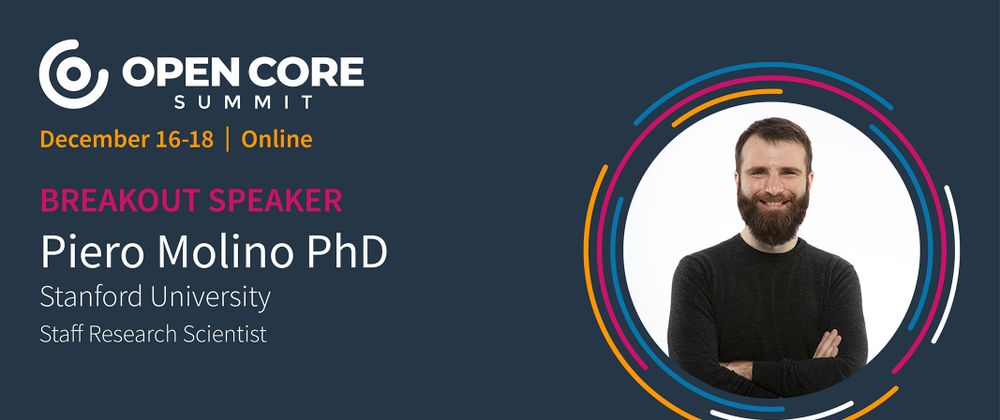Piero Molino is a Staff Research Scientist at Stanford University working on Machine Learning systems and algorithms. Piero completed a PhD on Question Answering at the University of Bari, Italy. Founded QuestionCube, a startup that built a framework for semantic search and QA. Worked for Yahoo Labs in Barcelona on learning to rank, IBM Watson in New York on natural language processing with deep learning and then joined Geometric Intelligence, where he worked on grounded language understanding. After Uber acquired Geometric Intelligence, he became one of the founding members of Uber AI Labs. At Uber he worked on research topics including Dialogue Systems, Language Generation, Graph Representation Learning, Computer Vision, Reinforcement Learning and Meta Learning. He also worked on several deployed systems like COTA, an ML and NLP model for Customer Support, Dialogue Systems for driver hands free dispatch, pickup and communications, and on the Uber Eats Recommender System with graph learning. He is the author of Ludwig, a code-free deep learning toolbox backed by the Linux Foundation.
Relevant Links
LinkedIn - Twitter
Introducing Ludwig, a toolbox to make deep learning easy and enables faster model iteration through its AutoMl capabilities.
(JJ speaks about Piero’s background). I’d love for you to start with Ludwig, and give us some perspective on your background, and what led to you joining Uber and creating Ludwig. - 0:16
How does Michelangelo relate to Ludwig? - 4:48
There’s a lot around the pipeline ecosystem in data science and machine learning. Back in 2017, Uber also built Pyro. Can you talk about the relationship between Ludwig and Pyro? - 6:13
So it sounds like Ludwig is a new kind of declarative framework for building machine learning models iteratively, without needing to write a lot of code. Is that true? - 8:59
What type of use cases have you seen in the industry as Ludwig gets external adoption beyond Uber? - 10:20
One of the things you mentioned is profound, is enabling people to build machine-learning applications without needing to understand all of the internals. That enables you to democratize this technology very quickly. (JJ shows example from Ludwig’s README). Can you talk about the workflow that non-ML engineers can go through when learning about Ludwig, and when is the best time to start to use Ludwig? When you want to start using machine learning in your application/workflow, what time does it really make sense to learn about Ludwig? - 14:38
What’s the best way to find you and follow everything you’re working on? - 20:38
Share your questions and comments below!



Top comments (0)